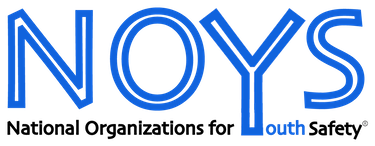Addicted to your phone? New book explores why.
October 02, 2013"If you are reading this review in a printed newspaper and do not stop midway to check emails, answer your cell phone, or send a text, then you may not need to read any further. If, however, you did any of those things, or if you are skimming the review online and pop-up ads or message notifications divert your attention or cause you to shift momentarily to another task, then Alex Pang’s new book may be precisely what you should read — and pronto if you are convinced you can manage those and other interruptions without negative repercussions.
A highly readable yet substantive examination of our relationship with all forms of computerized activity, “The Distraction Addiction” combines solid research, anecdotal evidence, and refreshing humor to identify a growing problem. Statistics show that Americans spend four to six months a year emailing, texting, checking Facebook, shopping on line, and playing computer games. Pang acknowledges there is disagreement over what constitutes a true addiction, but he identifies specific signs that you may have a problem: email apnea (holding your breath unconsciously before checking messages), phantom cell phone syndrome (imagining your cell phone vibrator is going off) and severe withdrawal symptoms if you try to take a digital Sabbath (unplugging everything for a day).
And what about the effects on our work? We are persuaded that ever more sophisticated timesaving devices help us multi-task; however, we are more often engaged in what Pang calls switch-tasking, a behavior that divides our attention among competing and often insignificant goals. This interrupts flow, wastes time, and makes our relationships with both our devices and our colleagues unproductive and unsatisfying — not to mention those with family and friends.
The key to improvement is contemplative computing, which Pang allows sounds like an oxymoron. But he carefully describes what it is, how to do it, and how it helps develop human mastery over the digital world rather than the other way around. His approach is multifaceted, recommending remarkably traditional methods often used for breaking any bad habit: documenting counterproductive patterns and identifying barriers that interfere with finding better ones; setting boundaries and limits; and relying on social relationships separate from the digital world for sources of engagement and fun. His advice is scholarly yet never pretentious or condescending, as he freely admits his own tendencies toward cyber dependency. He shares advice from interesting and enthusiastic experts around the world, and explains how low-tech interventions such as meditation and mindfulness can be as effective as high-tech software programs that force one’s focus to a single narrow task or even shut down your Facebook or email access for pre-set, irreversible blocks of time.
It is interesting that the author chooses the term distraction addiction rather than technology or Internet addiction. Pang maintains that our brains are programmed to pay attention to and be infatuated with variety and change and to avoid boredom. It was adaptive in our early history to notice changes in our environment — our very survival depended on it. Now when our devices blink, buzz, or ping, we feel compelled to check them for fear of missing something important or being out of touch; we are afraid of being disconnected for even short periods. He compares our behavior to that of overly engaged parents with their children when commenting that “ our mobile devices act like toddlers: they’re super responsive, simultaneously eager to please and oppressively demanding, always on, and insistent that we pay attention to them.”
“The Distraction Addiction” proposes that it is not only possible but also necessary to disengage in a planned, meaningful way if we are to become more effective — and happier — participants in the technological world. Tech-savvy readers will enjoy Pang’s up-to-the-minute familiarity with the latest and greatest cyber developments. But there is a little something for everyone as Pang touches on history, psychology, philosophy, biology, and even theology as he makes his case for more contemplative computing. This entertaining and informative book is a good first step toward that end."














